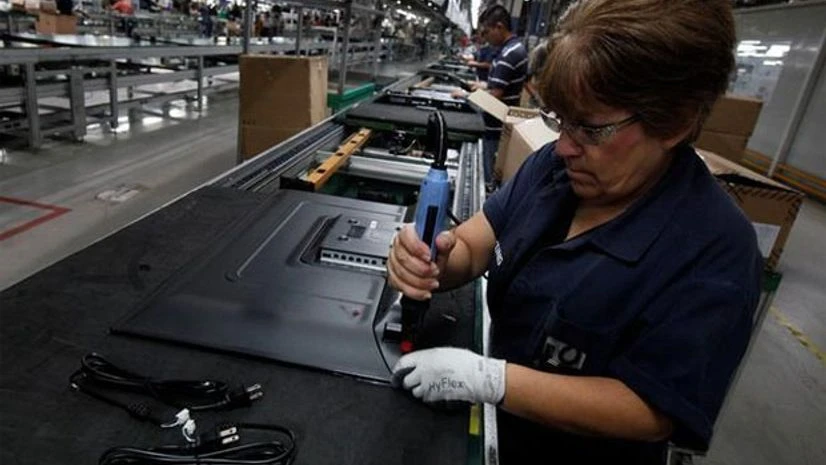The US manufacturing sector saw robust growth in March, marking the highest reading since December 1983, the Institute for Supply Management (ISM) reported Thursday.
The Purchasing Managers' Index (PMI) stood at 64.7 per cent, up 3.9 percentage points from the February reading. Any reading above 50 per cent indicates the manufacturing sector is generally expanding as reported by Xinhua.
The March PMI indicates expansion in the overall economy for the 10th month in a row after contracting in March, April, and May last year, according to the ISM report.
"While many components shot higher, a key factor was supply-chain constraints which drove supplier deliveries to its highest mark since 1974," Sarah House and Tim Quinlan, senior economists at Wells Fargo Securities, wrote in an analysis. The ISM report showed that supplier deliveries jumped to 76.6 in March as reported by Xinhua.
"Survey Committee Members reported that their companies and suppliers continue to struggle to meet increasing rates of demand due to coronavirus (COVID-19) impacts limiting the availability of parts and materials," said Timothy Fiore, chair of the ISM's manufacturing business survey committee.
"Extended lead times, wide-scale shortages of critical basic materials, rising commodities prices and difficulties in transporting products are affecting all segments of the manufacturing economy," Fiore continued.Fiore added that worker absenteeism, short-term shutdowns due to part shortages, and difficulties in filling open positions continue to be issues that limit manufacturing growth potential.
More From This Section
"Optimistic panel sentiment increased, with eight positive comments for every cautious comment, compared to a 5-to-1 ratio in February," Fiore said.House and Quinlan also noted that delays have stemmed in part from factories finding all the labour they need to meet the surge in demand as workers struggle with health concerns and childcare issues.
"With vaccinations ramping up, however, and more schools moving back to in-person learning, at least one element of recent bottlenecks may be abating," they said. The employment index shot up more than five points last month to 59.6, according to the ISM report.
The National Counterintelligence and Security Center (NCSC) and its partners in government and industry launched the 4th annual "National Supply Chain Integrity Month" on Thursday, with a call to action for organizations across the country to strengthen their supply chains against foreign adversaries and other potential risks.
Throughout April, NCSC is teaming up with the Department of Homeland Security's Cybersecurity and Infrastructure Security Agency (CISA), the Federal Communications Commission (FCC), the Department of Defense's Center for the Development of Security Excellence (CDSE), the National Association of State Procurement Officials (NASPO), the National Association of Counties (NACo), and other partners to raise awareness of threats to U.S. supply chains and share information on risk mitigation. A host of public and non-public events with stakeholders in government, industry, and academia are planned to enhance supply chain risk management efforts.
(Only the headline and picture of this report may have been reworked by the Business Standard staff; the rest of the content is auto-generated from a syndicated feed.)

)
